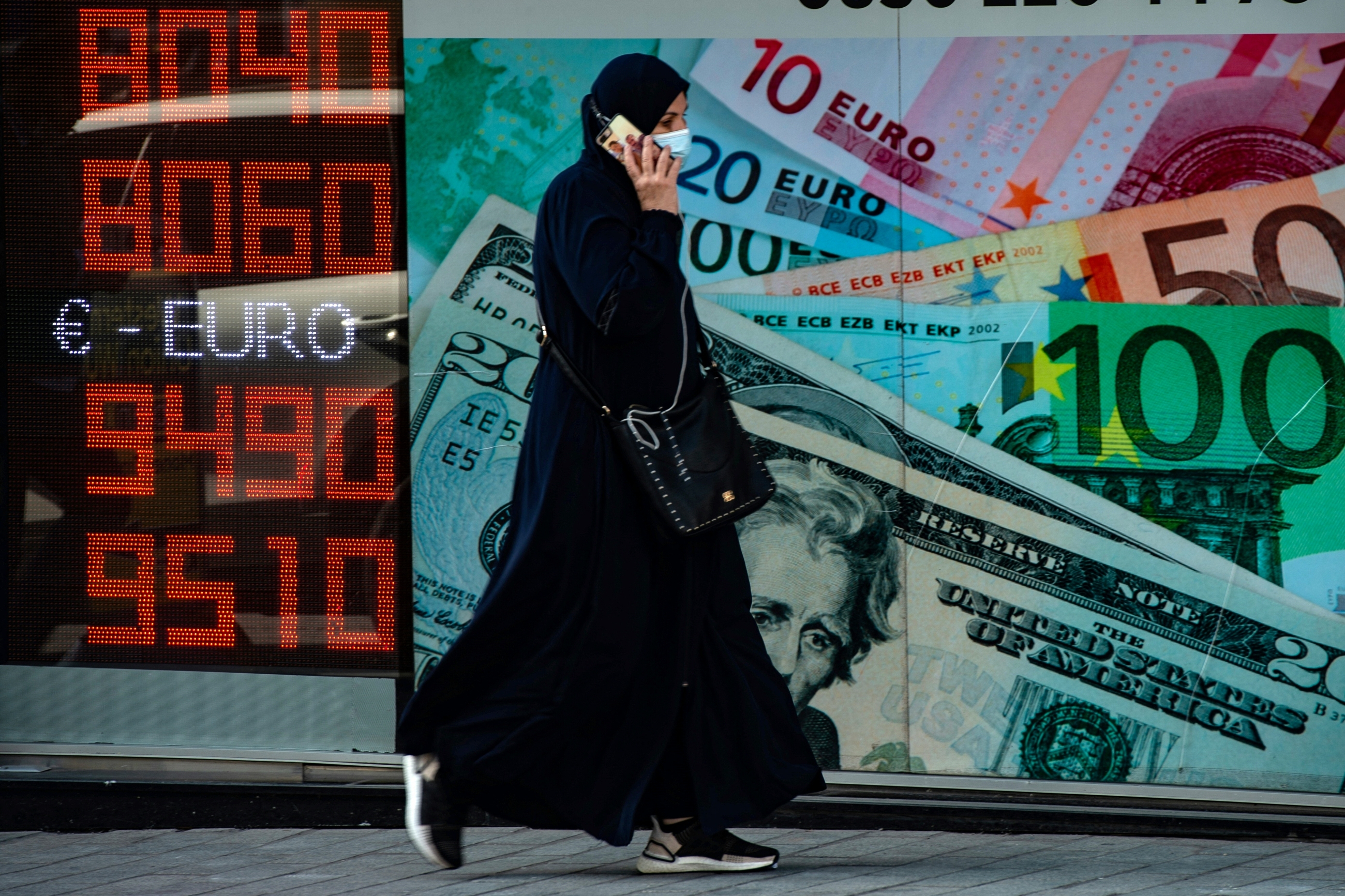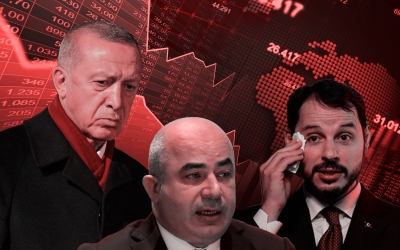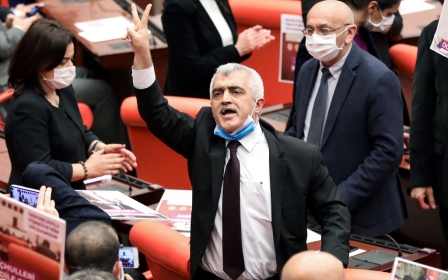Turkey: Shock sacking sinks lira as Istanbul stock exchange loses 2021 gains

Turkey’s markets suffered a huge setback on Monday, losing nearly all of its 2021 gains while the Istanbul stock exchange briefly suspended its trading after its main index fell by more than 10 percent.
The Turkish lira also suffered a nearly 10 percent depreciation in response to President Recep Tayyip Erdogan’s decision to replace the central bank governor for the third time in less than two years.
The currency tumbled to as low as 7.91 to the dollar. Turkey’s 10-year treasury bonds yield also rose by 319 points to 17.25 percent, a record high.
Erdogan’s decision on Saturday to dismiss Naci Agbal, a former budget director for the presidency who is known for his orthodox monetary policies, came as a shock to investors and economists as he was only appointed less than five months ago to boost the confidence in the Turkish economy.
Agbal’s replacement, Sahap Kavcioglu, an academic and banker, wrote columns in February that are supportive of Erdogan’s unorthodox theory that high interest rates cause high inflation.
The government on Monday tried to calm the markets by issuing statements on their commitment to the free flow of money in Turkish markets. "There will be absolutely no move away from the free market mechanism," Finance Minister Lutfi Elvan said in a statement. "We will continue with determination to implement the liberal exchange system."
Elvan also reiterated Turkey's commitment to fighting inflation which has been gathering pace for months.
Consumer prices were up by 15.61 percent on an annualised basis in February.
“I guess markets can take some encouragement from recommitment to no capital controls and the fact that state banks and presumably the Central Bank have been selling dollars and have got the lira back below eight [against the dollar],” said Tim Ash, a London-based investment banker.
However Turkey indirectly intervening in the markets by selling US dollars through the state banks remains a concern, as the Central Bank’s net reserves are already below zero, around minus $42bn. The lira was changing hands at around 7.22 to the dollar before Agbal was sacked.
He was appointed after Erdogan dismissed his predecessor, Murat Uysal, and the president's son-in-law Berat Albayrak resigned as finance minister, in November.
The change to the finance team offered hope to the markets that Turkey would tread a more orthodox path, hiking interest rates to combat inflation.
Erdogan's decree did not provide a reason for Agbal's dismissal, but the move came two days after the Central Bank raised its benchmark interest rate by a larger-than-expected 200 basis points to 19 percent, making Turkey's interest rates among the highest in the world.
Several sources suggested in Ankara that Erdogan was angered by Agbal’s hawkish rate hike since even the markets’ expectation was around 100 basis points.
Middle East Eye propose une couverture et une analyse indépendantes et incomparables du Moyen-Orient, de l’Afrique du Nord et d’autres régions du monde. Pour en savoir plus sur la reprise de ce contenu et les frais qui s’appliquent, veuillez remplir ce formulaire [en anglais]. Pour en savoir plus sur MEE, cliquez ici [en anglais].





